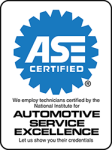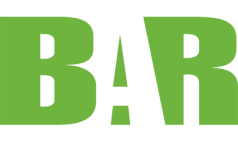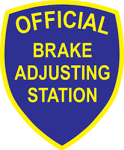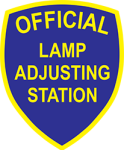




Our Heavy-Duty Diesel Vehicle Enforcement service team at Steven's Bay Area Diesel Service works to ensure compliance with emissions standards and towards the proper maintenance of heavy-duty trucks to reduce air pollution and protect public health. Our certified technicians execute inspections, repairs, and maintenance with the latest technology to comply with the Enforcement of Clean Truck Check – Heavy-Duty Inspection and Maintenance (HD I/M) Regulations. We work to keep your heavy-duty diesel vehicle running smoothly and efficiently while adhering to all regulations.
Our Heavy-Duty Diesel Vehicle Enforcement service conducts comprehensive inspections to ensure that heavy-duty diesel vehicles meet the required standards set forth by the regulations.
We provide recommendations for necessary maintenance and repairs to help you make sure that diesel truck remains in compliance with the regulations.
Prompt repairs are conducted to address any issues found during inspections – helping vehicles stay compliant within the regulatory guidelines.
We assist our customers in maintaining accurate documentation of inspections, repairs, and maintenance activities to demonstrate compliance with the regulations.
Our team of expert technicians offer guidance and communicate recommendations to help customers understand and adhere to the laws.
We offer ongoing monitoring services to ensure that vehicles remain in compliance with the regulations over time.
We stay up-to-date with any changes or updates to the regulations to make sure that our services align with current compliance standards.
Our team consists of experienced professionals who are well-versed in the requirements of the Enforcement of Clean Truck Check – Heavy-Duty Inspection and Maintenance (HD I/M) Regulations.
Steven's Bay Area Diesel Service's Heavy-Duty Diesel Vehicle Enforcement service offers comprehensive solutions to ensure compliance with the Enforcement of Clean Truck Check – Heavy-Duty Inspection and Maintenance (HD I/M) Regulations. With our professional expertise, timely repairs, and diligent maintenance recommendations, we aim to provide peace of mind to customers operating heavy-duty diesel vehicles – helping them navigate regulatory requirements while keeping their trucks and fleets running smoothly & efficiently.
The Heavy-Duty Vehicle Inspection and Maintenance Program Regulations are a set of rules and guidelines established to ensure the proper inspection and maintenance of heavy-duty vehicles. These regulations typically aim to reduce emissions from heavy-duty vehicles, improve air quality, and ensure the safe operation on roads and highways. The regulations include requirements for regular inspections, emissions testing, maintenance procedures, and compliance verification for heavy-duty vehicles operating within California. These regulations are implemented and enforced primarily by the California Air Resources Board (CARB).
Title 13, California Code of Regulations, adopts new sections 2195 to 2199.1, outlining the Heavy-Duty Inspection and Maintenance (HD I/M) Regulation. This regulation applies to non-gasoline heavy-duty vehicles and their owners/operators, freight contractors, applicable freight facilities, device vendors, and vehicle testing personnel.
Exemptions include zero-emission heavy-duty vehicles, emergency vehicles, certain military and certified vehicles, out-of-state motor homes, experimental permit vehicles, and historical vehicle license plate holders.
Temporary exemptions are granted for out-of-state heavy-duty vehicles during declared emergencies. Specific requirements within the regulation become effective upon confirmation of necessary electronic reporting system readiness, with effective dates communicated at least 90 days in advance, ensuring compliance and operational readiness by designated deadlines.
Section 2195.1 of the California Code of Regulations plays a crucial role in the Heavy-Duty Inspection and Maintenance (HD I/M) Regulation by providing clear definitions for important terms used in the regulations.
This section explains terms like “Affirmation of Fleet Wide Compliance,” which refers to documents confirming fleet compliance, and “Aftermarket part,” which includes performance parts exempt from certain regulations. It also defines “Agricultural vehicle” and other terms to ensure accurate understanding and consistent enforcement.
By establishing these definitions, Section 2195.1 helps ensure that the HD I/M Regulation is effectively implemented and enforced, promoting environmental protection and regulatory compliance in California’s heavy-duty vehicle industry.
Section 2196.1 of the California Code of Regulations outlines the requirements for demonstrating compliance with the Heavy-Duty Inspection and Maintenance (HD I/M) Regulation. Vehicle owners must adhere to specific criteria detailed in subsections (b)(1) through (b)(5) to demonstrate compliance. Upon a transfer of ownership or registration in California, new owners must ensure compliance within the last 90 calendar days preceding the transfer date.
However, transfers between certain entities and additions of registered owners do not constitute transfers of ownership under certain conditions. The Executive Officer may deem a vehicle compliant within 72 hours if various conditions, including payment of the compliance fee, reporting of owner and vehicle information to CARB, passing compliance test, and absence of outstanding enforcement actions or recalls, are met.
Additionally, vehicles subject to the regulation must undergo periodic vehicle emission testing according to specified frequencies. The compliance fee, initially set at $30.00 per registered vehicle, is subject to annual adjustment based on the California Consumer Price Index. CARB is authorized to disclose the compliance status of vehicles operating in California.
The Periodic Vehicle Emission Testing Requirements outlined in this section apply to all vehicles subject to the Heavy-Duty Inspection and Maintenance (HD I/M) Regulation. Vehicle owners must ensure compliance through specific test procedures based on whether the vehicle is OBD-equipped or not. OBD-equipped vehicles undergo compliance tests using certified devices meeting California Standards for Heavy-Duty Remote On-board Diagnostic Devices. The Executive Officer determines compliance based on various criteria, including OBD system reports and data consistency.
Non-OBD-equipped vehicles require a smoke opacity test according to the SAE J1667 procedure and a vehicle emissions control equipment inspection. Alternative fuel vehicles are exempt from the opacity test requirement. Compliance for non-OBD-equipped vehicles is determined based on emissions control equipment inspection results and smoke opacity standards.
Additionally, all applicable heavy-duty vehicles in California are subject to on-road emissions monitoring through CARB-authorized roadside devices. Vehicles exceeding certain emissions thresholds may be issued a Notice to Submit to Testing based on recorded measurements corresponding to OBD trigger thresholds or smoke opacity standards.
The Smoke Opacity Standards specify the maximum allowable smoke opacity levels for vehicles tested using the SAE J1667 smoke opacity test procedure. For on-road vehicles, the standards vary based on factors such as the model-year of the diesel engine and the type of vehicle emissions control system (VDECS) installed. For example, vehicles powered by newer diesel engines or equipped with advanced VDECS have lower opacity standards compared to older vehicles.
Similarly, off-road vehicles have opacity standards determined by factors such as engine type and emission control equipment. Off-road vehicles powered by engines with diesel particulate filters or retrofitted with Level 3 VDECS have lower opacity standards compared to those without such equipment. The standards aim to regulate smoke emissions from heavy-duty vehicles and ensure compliance with environmental regulations.
Referee Services are applicable to heavy-duty vehicle owners under various circumstances outlined by the Executive Officer. These include instances where law enforcement requests a vehicle to be inspected, discrepancies in OBD data, issuance of a Notice to Submit to Testing, suspicion of tampered emission control components, failure to submit required testing data, unresolved citations, and other auditing or compliance purposes.
If directed by the Executive Officer, the vehicle owner must undergo a referee-performed compliance test to meet the requirements of the HD I/M Regulation. Additionally, vehicle owners may request a referee inspection for disputes regarding compliance status, vehicles with non-standard engine or emission configurations, conversions to motor homes, or when seeking compliance time extensions.
The referee inspection entails evaluating emissions control systems, conducting equipment inspections, OBD tests, opacity tests, and verifying compliance with regulatory requirements. Referees recommend non-compliance if vehicles fail specified tests or do not meet regulatory criteria, but may recommend compliance if technical issues prevent resolution.
Vehicle owners can request a compliance time extension through the referee if they cannot find the necessary parts to bring their vehicle into compliance. To do so, they must provide documentation demonstrating their efforts to find the required parts. The referee verifies certain owner and vehicle requirements, including ensuring that emissions control systems are intact, there are no outstanding recalls or citations, and that the owner has made a genuine effort to seek timely repairs.
Based on the referee’s recommendation and the documentation provided by the owner, the Executive Officer may grant a compliance time extension if it’s evident that the owner has made a sincere effort to comply and the necessary parts are unavailable. If approved, the vehicle can operate until the next compliance deadline, and the owner will receive a provisional HD I/M compliance certificate.
Freight contractors must only engage compliant vehicles or fleets and keep records accordingly. If contracting through intermediaries where compliance can’t be verified, they still need to maintain records. Brokers are required to arrange transportation within California only with compliant motor carriers and maintain records accordingly.
Applicable freight facilities must ensure compliance by either verifying vehicle compliance upon entry or maintaining records of non-compliant vehicles. Alternatively, they can opt to ensure compliance within the past year for vehicles entering their property. These requirements don’t apply if vehicles are delivering goods or services to the facility or its employees as end-users.
To perform compliance tests and inspections for the Heavy-Duty Inspection and Maintenance (HD I/M) Regulation, individuals need to obtain a HD I/M tester credential. This credential is issued by the Executive Officer upon meeting certain requirements:
1. Successful completion of a training course provided by CARB, demonstrated by a valid certificate.
2. Achieving a passing score of 80% or higher on the training course exam administered by CARB.
3. No history of previous revocation of the HD I/M tester credential.
The training course covers various modules, including regulatory information, opacity testing, OBD testing, and visual inspection methods. CARB may accept alternative training certificates for the opacity module if obtained before the effective date of periodic vehicle emission testing requirements.
The HD I/M tester credential remains valid for two years from the completion date of the training course. To maintain validity, testers must retake the training course and pass any required exams before or upon expiration.
Responsibility for the accuracy of data submitted to CARB lies with the vehicle owner, HD I/M tester, or any other involved entity. Failure to ensure accuracy may result in penalties.
The Executive Officer reserves the right to revoke a HD I/M tester credential for violations of the regulation, including fraudulent data submission or non-compliance with testing procedures. Revocation may also lead to a prohibition on future testing by the individual or associated entities.
The reporting requirements outlined in this section of the HD I/M Regulation necessitate affected entities to provide specific information to CARB. Falsifying any information submitted constitutes a violation of the regulation, subjecting the submitter to penalties. The Executive Officer holds the authority to revoke a vehicle’s HD I/M compliant status for non-compliance with reporting requirements.
Vehicle owners or their designees are required to report owner and vehicle details, including VIN, license plate number, vehicle make and model, and engine fuel type. They must attest to the accuracy of the reported vehicle list and update it within 30 days of purchase or sale.
Additionally, OBD testing data and smoke opacity testing data must be submitted for each applicable vehicle. HD I/M testers are also required to provide their information to CARB before conducting and submitting compliance test results.
In specific circumstances, such as applying for a Five-Day pass or seeking a compliance time extension due to parts unavailability, vehicle owners need to submit detailed information about the needed repairs, unavailable parts, and efforts made to contact repair facilities.
Overall, compliance with these reporting requirements is crucial for ensuring the effective implementation of the HD I/M Regulation and maintaining vehicle compliance.
Affected entities under the HD I/M Regulation must adhere to specific recordkeeping requirements and furnish records to CARB upon request. These records must be retained for a minimum of five years and provided within 72 hours of a written or oral request.
Freight contractors must retain records including HD I/M compliance certificates or affirmations of fleet-wide compliance for dispatched vehicles. Documentation of transactions and agreements between shippers, receivers, brokers, and motor carriers involving heavy-duty vehicles in California must also be retained.
Brokers must keep records of compliance verification for each motor carrier or vehicle owner they contract with, including HD I/M compliance certificates or affirmations of fleet-wide compliance.
Applicable freight facilities must maintain records of compliance attestations and, if applicable, records of vehicles for which compliance has not been verified.
Drivers and vehicle owners of heavy-duty vehicles operating for commercial purposes in California must carry documentation related to their current hiring freight contractor or broker, as well as documents establishing any exemptions for emergency operations.
ROBD device vendors certified by CARB must comply with recordkeeping requirements outlined in the regulation.
Vehicle emissions control equipment inspections are conducted by inspectors, referees, and HD I/M testers. These inspections involve verifying several components:
1. Ensuring the emission control label is present and legible to confirm compliance with regulations.
2. Verifying the proper configuration of emissions-related components based on manufacturer specifications found in certification data, repair information, and Executive Orders.
3. Checking the correct installation and application of aftermarket parts to ensure compliance.
4. Verifying the vehicle’s mileage using the odometer.
5. Checking the operational status of the MIL bulb, if applicable, and failing the inspection if certain conditions are not met, such as the MIL not illuminating when required or illuminating continuously or flashing while the engine is running.
During an in-person field inspection, the driver of a selected heavy-duty vehicle must:
1. Drive the vehicle to the inspection site when directed.
2. Provide proof of their driver’s license and vehicle registration upon request.
3. Allow the inspector to conduct inspections and tests as required by regulations.
4. Open the vehicle door for the inspector to observe specific actions, such as depressing the accelerator pedal and checking the status of the MIL and odometer.
5. Permit an emissions control equipment inspection and open the engine compartment if requested.
6. Sign any relevant citations or inspection reports.
The inspector conducting the inspection must:
1. Inform the driver that refusal to submit to the inspection is an admission of violation.
2. Request and obtain the driver’s license, vehicle registration, and temporary operating permit if applicable.
3. Collect all relevant vehicle and engine identification information.
4. Perform necessary tests and inspections according to regulations.
5. Verify the vehicle’s compliance with HD I/M Regulation requirements.
6. Issue a citation to the driver if the vehicle fails to meet regulation requirements.
The enforcement of the Heavy-Duty Vehicle Inspection and Maintenance Program Regulations varies from state to state in the United States. While some states may have their own regulatory agencies responsible for enforcing such regulations, others may rely on their environmental or transportation departments.
Additionally, some states may adopt regulations set by the federal government, particularly those related to emissions standards. Overall, the enforcement of these regulations depends on the specific laws and policies established by each state to address air quality and vehicle emissions control.
Enforcement measures under the HD I/M Regulation include:
If any part of this HD I/M Regulation is found invalid, unconstitutional, or unenforceable by a court, it will be considered separate from the rest of the regulation. The invalidity of one part will not affect the validity of the remaining portions.
Contact us today and let our expert mechanics take care of all your diesel service needs.





Steven’s Bay Area Diesel in South San Francisco, CA has provided expert Diesel Engine Repairs and Parts & Service since 1985. Our dedicated team of mechanics specialize in heavy-duty and light truck maintenance. Committed to reliable service and customer satisfaction — trust us for all your diesel engine needs!
HOURS
Monday - Friday
8:00am - 5:00pm
Saturday - CLOSED
Sunday - CLOSED
PAYMENTS ACCEPTED
CONTACT US
480 Littlefield Avenue
South San Francisco, CA
Copyright © 2026 Steven’s Bay Area Diesel Service, Inc. All rights reserved. Web Design by GINGALLEY.